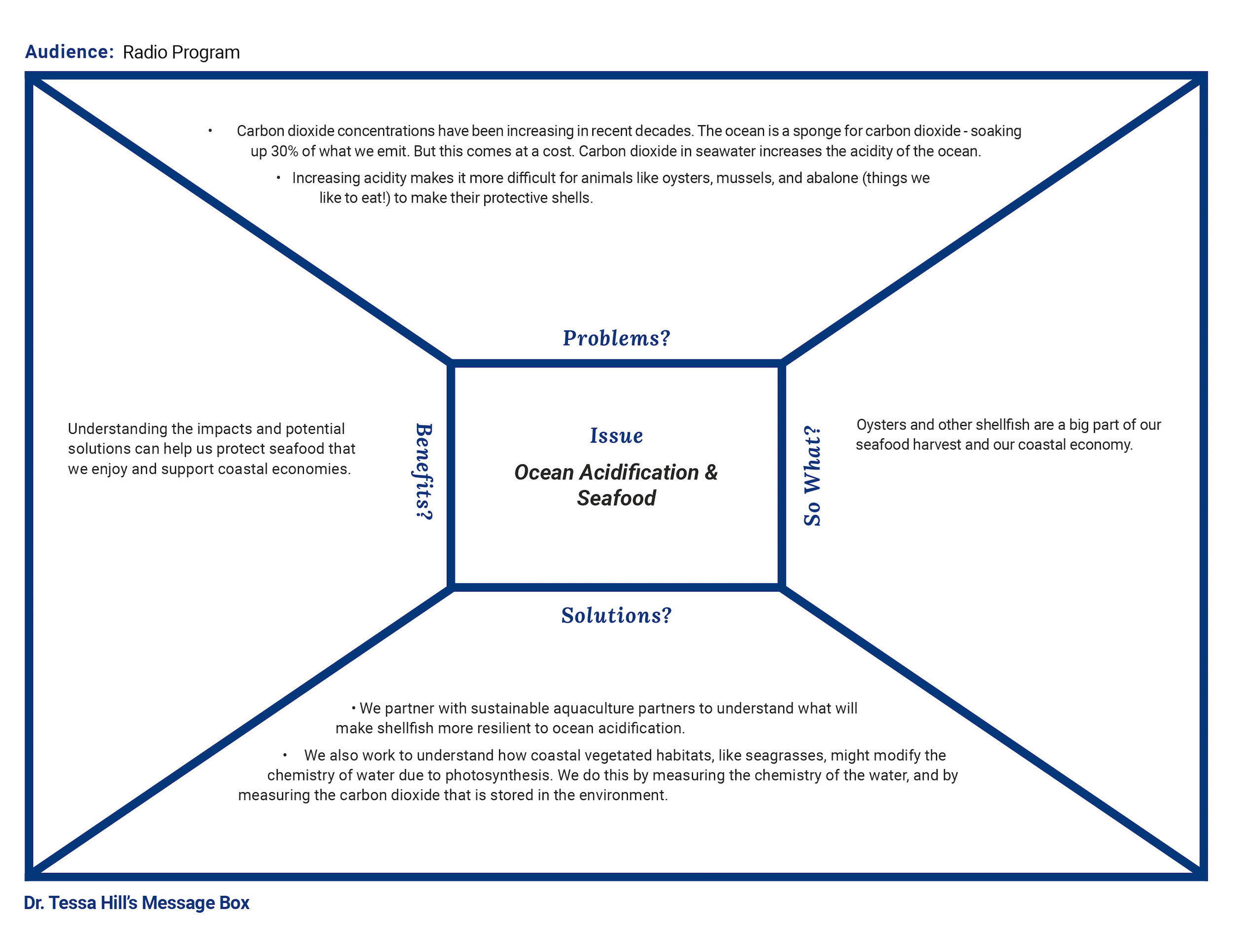Dr. Tessa Hill’s Message Box
Dr. Tessa Hill is an Associate Professor in the Department of Earth and Planetary Sciences at Bodega Marine Laboratory, and Associate Director of Academic Programs at the Coastal and Marine Sciences Institute at the University of California at Davis. She worked on her Message Box at a COMPASS training in preparation for an interview on NPR’s Science Friday later that week (you can listen to it here). The box below is her fourth iteration, illustrating how many people find it valuable to work and rework their messages to make them clear and memorable. Listen for the points that she outlined in her Message Box, and note how she doesn’t read from her Box, but uses her messages in her conversation with radio host Ira Flatow. She also uses metaphors to help the audience understand her points, and does a demonstration!
Read Transcribed Message Box Here
Dr. Tessa Hill’s Message Box
Audience: Radio Program
Issue: Ocean Acidification & Seafood
Problems?
- Carbon dioxide concentrations have been increasing in recent decades. The ocean is a sponge for carbon dioxide – soaking up 30% of what we emit. But this comes at a cost. Carbon dioxide in seawater increases the acidity of the ocean.
- Increasing acidity makes it more difficult for animals like oysters, mussels, and abalone (things we like to eat!) to make their protective shells.
Benefits?
Understanding the impacts and potential solutions can help us protect seafood that we enjoy and support coastal economies.
Solutions?
- We partner with sustainable aquaculture partners to understand what will make shellfish more resilient to ocean acidification.
- We also work to understand how coastal vegetated habitats, like seagrasses, might modify the chemistry of water due to photosynthesis. We do this by measuring the chemistry of the water, and by measuring the carbon dioxide that is stored in the environment.
So What?
- Oysters and other shellfish are a big part of our seafood harvest and our coastal economy.
- This process threatens food on our tables, local communities, and families that rely on shellfish harvest for their local economies.
